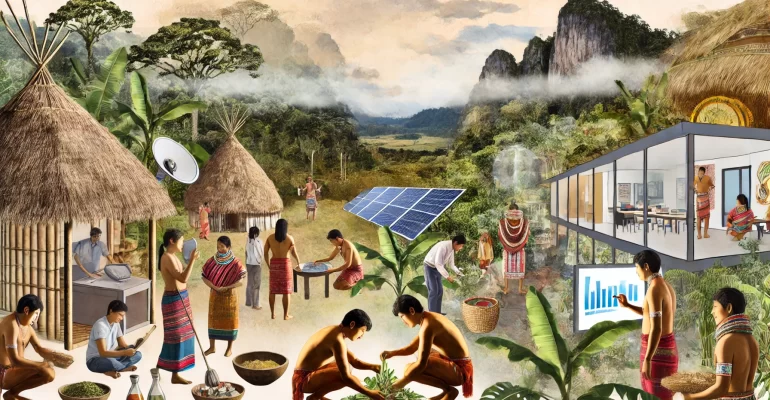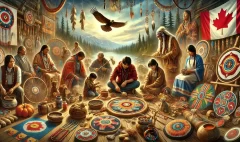Blending Old and New: Indigenous Knowledge in Today’s World
Blending Old and New: Indigenous Knowledge in Today’s World
Indigenous Traditional Knowledge isn’t just about the past – it’s super important for solving today’s problems too! “By bringing together our traditional knowledge and modern science, we’re finding better ways to solve big problems,” says Dr. Sarah Eagleheart, an Indigenous biologist. “It’s like having two different maps of the same place – together, they give us a much clearer picture!”
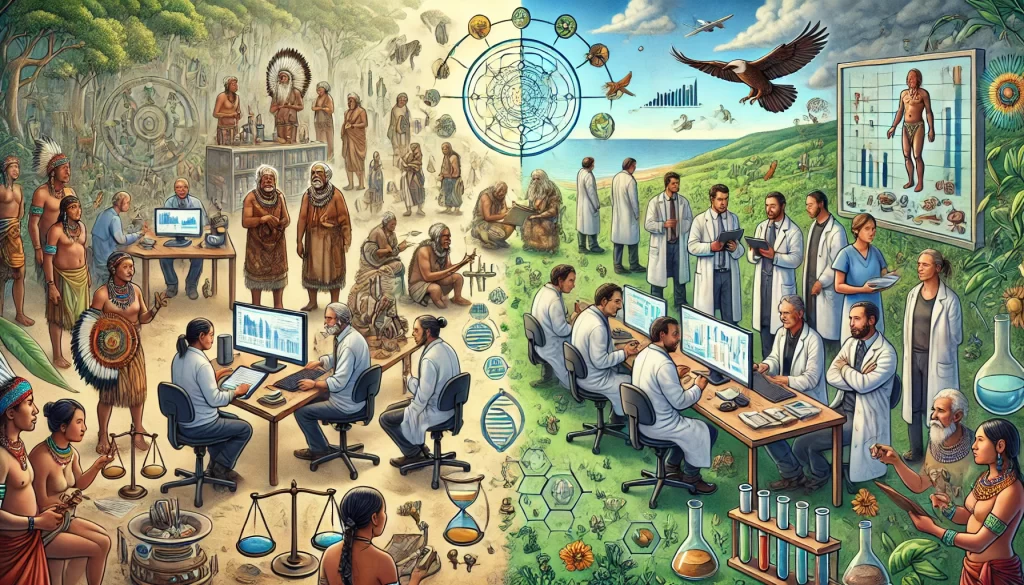
Indigenous Knowledge in Action: Exciting Research Collaborations
Now, let’s dive deeper into some really cool ways that Indigenous traditional knowledge is being used in modern research. It’s like a super team-up between ancient wisdom and new technology!
1. Climate Change and Environmental Research
Scientists are working with Indigenous communities to better understand and address climate change. Here’s how:
– Ice Knowledge: In the Arctic, Inuit knowledge about sea ice is helping track climate change impacts. Inuit terms for different types of ice are super detailed and help scientists understand ice conditions better than satellite images alone!
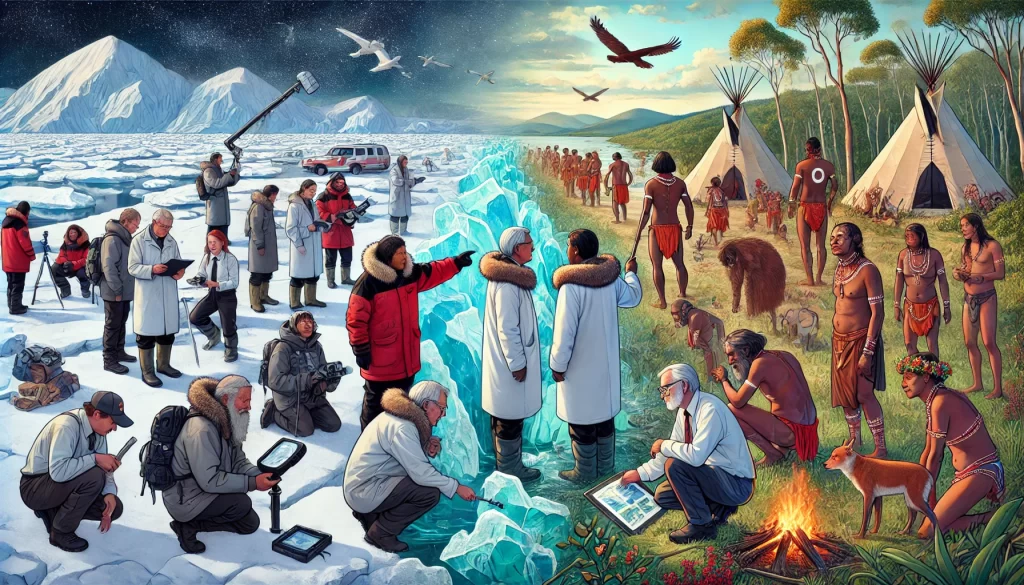
– Fire Management: In Australia (and similar work is happening in Canada), scientists are learning from Aboriginal fire management practices to prevent bushfires and protect biodiversity.
“Our elders can read the land and ice in ways that even the best technology sometimes can’t,” explains James Snowwalker, an Inuit environmental researcher. “By combining our traditional observations with scientific data, we’re getting a much fuller picture of how our world is changing.”
2. Wildlife Conservation
Indigenous knowledge is super helpful in protecting animals and their homes:
– Caribou Protection: In northern Canada, Indigenous tracking skills and knowledge of caribou behavior are being used to design better conservation strategies.
– Marine Life: On the coast, First Nations’ understanding of salmon spawning grounds and ocean currents is helping create more effective marine protected areas.
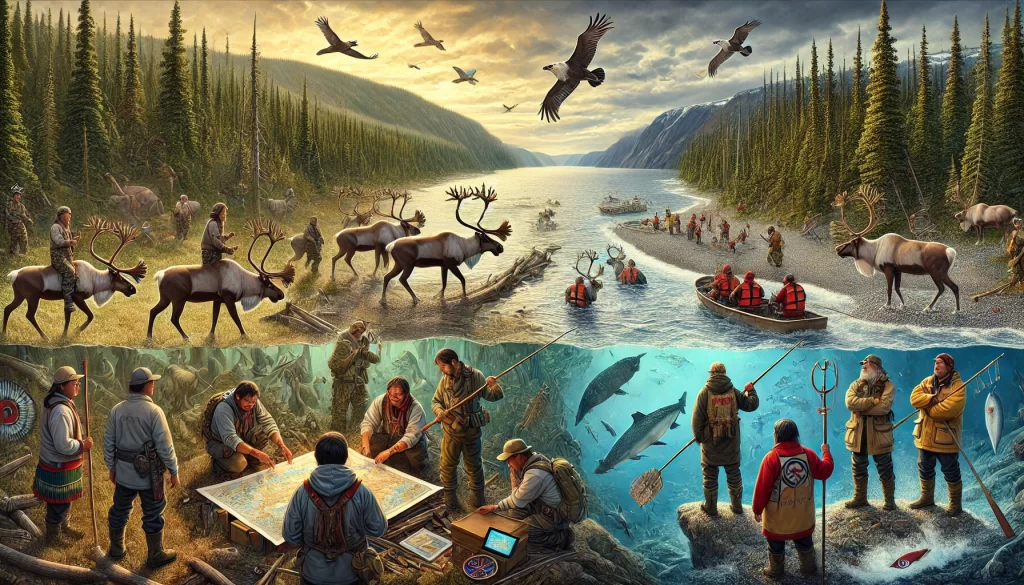
“We’ve always seen animals as our relatives, not just resources,” says Lisa Bearwoman, a wildlife biologist from the Haida Nation. “This perspective, combined with our long-term observations, is helping create conservation plans that really work for both animals and people.”
3. Medicine and Health
The medicine world is super excited about Indigenous knowledge:
– New Medicines: Scientists are working with Indigenous healers to study traditional medicinal plants. This has already led to new treatments for diseases!
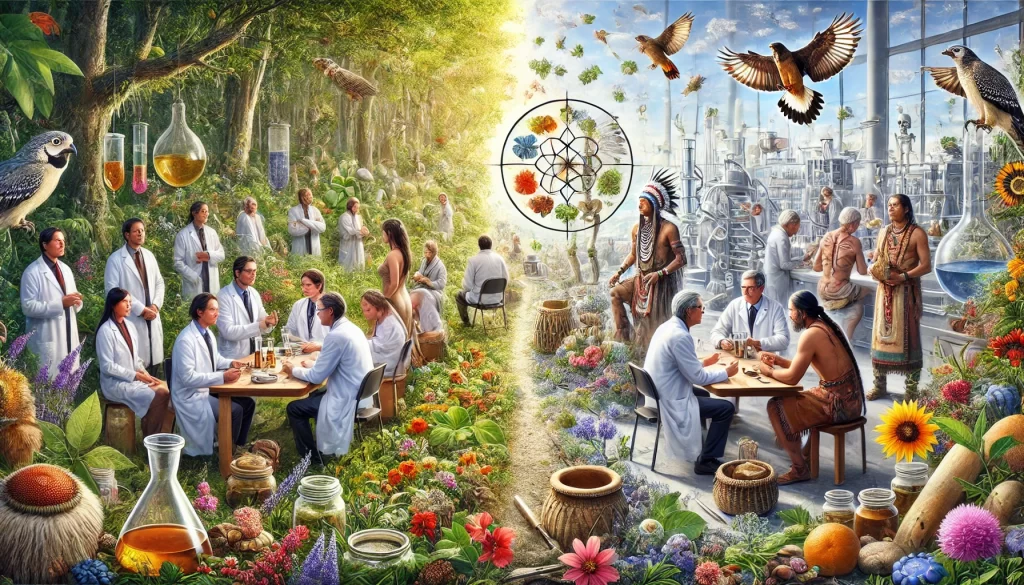
– Holistic Health: Researchers are looking at how Indigenous approaches to health, which often include spiritual and emotional aspects, can improve modern healthcare practices.
Dr. Robert Wolfrunner, an Indigenous pharmacologist, shares, “Our traditional medicines often treat the whole person, not just the symptoms. This holistic approach is opening up new ways of thinking about health and healing in the medical world.”
4. Sustainable Agriculture
Indigenous farming wisdom is helping grow food in eco-friendly ways:
– Three Sisters Farming: The traditional Indigenous practice of growing corn, beans, and squash together (called the Three Sisters) is inspiring new sustainable farming methods.
– Water Conservation: In dry areas, scientists are learning from Indigenous water management techniques to develop better irrigation systems.
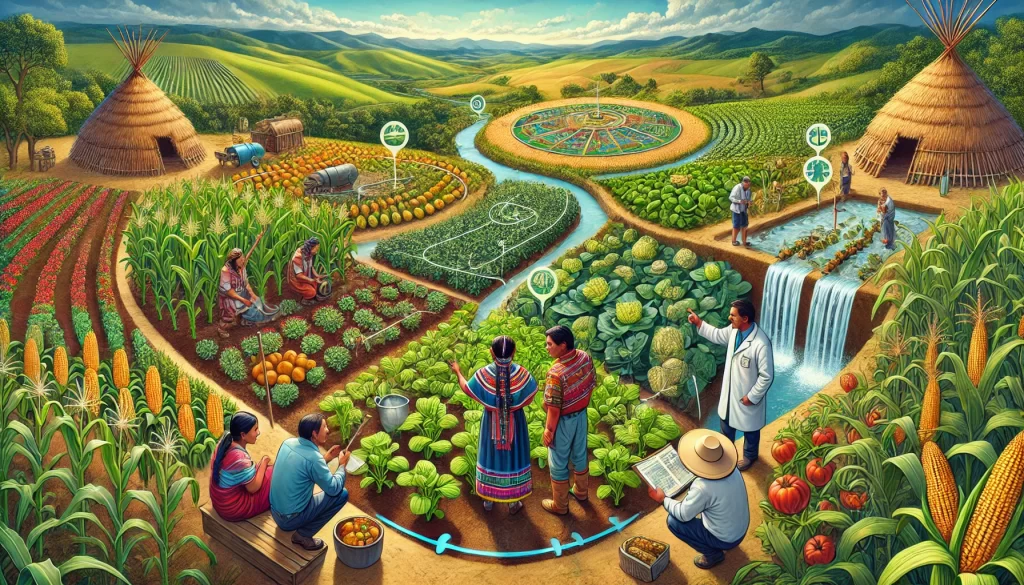
“Our ancestors knew how to farm in harmony with nature,” explains Maria Cornplanter, an Indigenous agronomist. “Now, these old methods are helping us figure out how to grow food sustainably in a changing climate.”
5. Astronomy and Navigation
Even space science is learning from Indigenous star knowledge:
– Star Calendars: Indigenous astronomical knowledge is helping scientists understand long-term celestial cycles and their effects on Earth.
– Navigation Techniques: Traditional Polynesian navigation methods (which are similar to some used by coastal First Nations) are being studied to improve modern navigation systems.
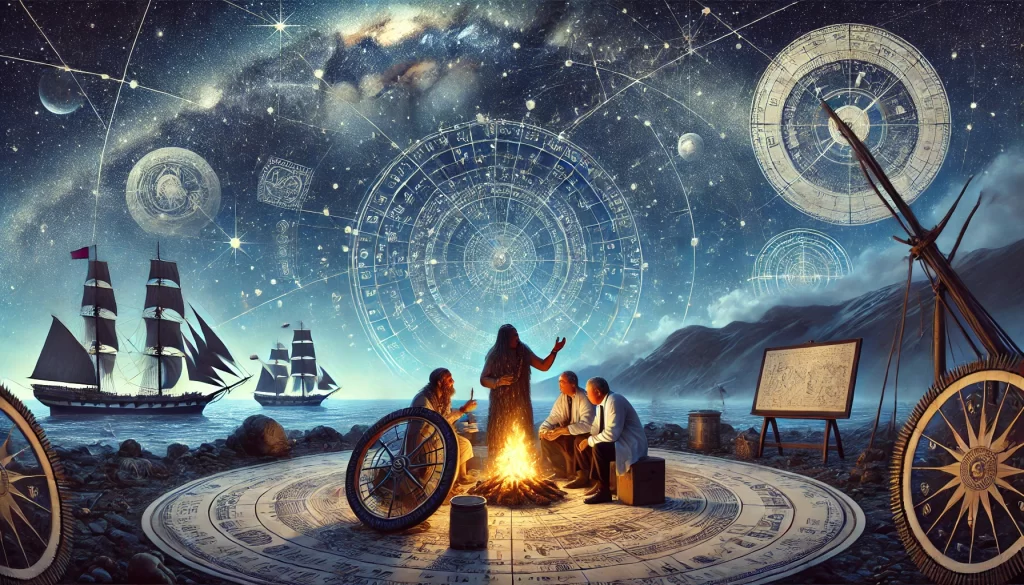
“The stars have been our guides for thousands of years,” says Tom Skywatcher, an Indigenous astronomer. “Now, our star stories are helping space scientists think about the universe in new ways.”
6. Disaster Prediction and Management
Indigenous knowledge is super helpful in keeping communities safe:
– Tsunami Warnings: In some coastal areas, Indigenous oral histories about past tsunamis are helping scientists identify high-risk zones and improve warning systems.
– Earthquake Prediction: Some researchers are studying Indigenous stories about animal behavior before earthquakes to develop better prediction methods.
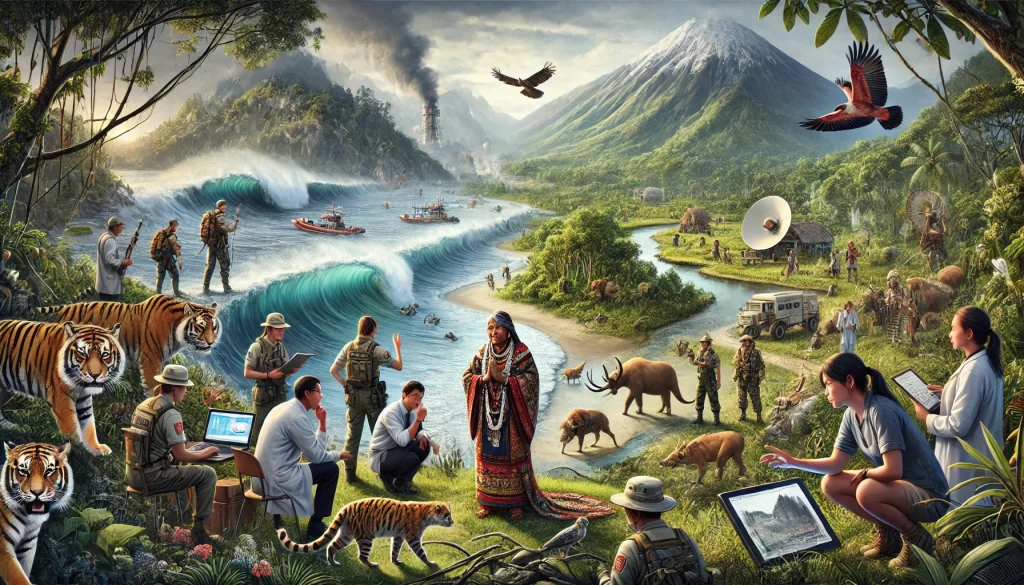
“Our stories aren’t just legends – they’re records of real events and observations,” explains Elder Sarah Earthlistener. “By paying attention to these stories, scientists are finding new ways to keep communities safe from natural disasters.”
7. Language and Cognitive Science
Believe it or not, Indigenous languages are teaching us about how our brains work:
– Diverse Thinking: Scientists are studying how different Indigenous languages express ideas about time, space, and relationships to understand different ways of thinking.
– Language Revival: Efforts to revive Indigenous languages are providing new insights into how people learn and remember languages.
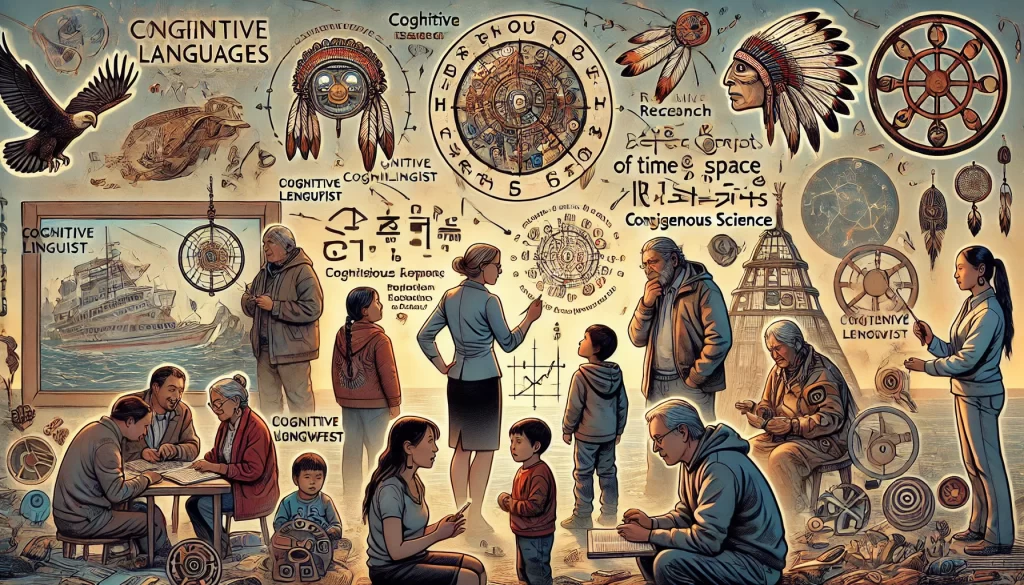
“Each Indigenous language is like a unique window into the human mind,” says Dr. Lisa Wordweaver, a cognitive linguist. “By studying and preserving these languages, we’re not just saving cultures – we’re discovering new things about how we think and communicate.”
Indigenous Knowledge in Today’s World; Why This Teamwork Matters
This awesome teamwork between Indigenous knowledge and modern science is important for lots of reasons:
- Better Solutions: By bringing together different ways of knowing, we can solve problems more creatively and effectively.
- Respect for Indigenous Wisdom: It shows that Indigenous knowledge is valuable and scientific in its own right.
- Healing Relationships: Working together helps build better relationships between Indigenous and non-Indigenous communities.
- Protecting Nature: Indigenous knowledge often includes ways of living that are good for the environment, which we really need right now.
- Saving Knowledge: Lots of Indigenous knowledge is in danger of being lost. Using it in modern research helps keep it alive and strong.
“When we work together, with respect for each other’s knowledge, everybody wins,” says Elder John Riverstone. “The land wins, the animals win, and all of us humans win too. It’s about finding balance and working together, just like nature does.”

